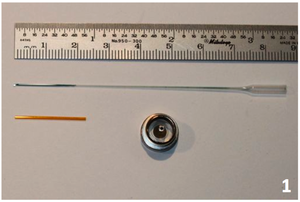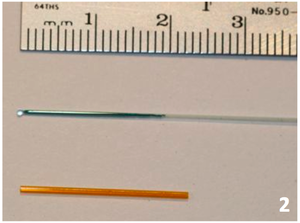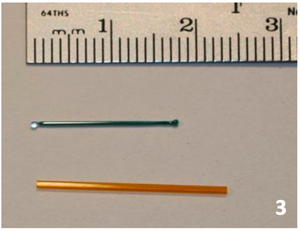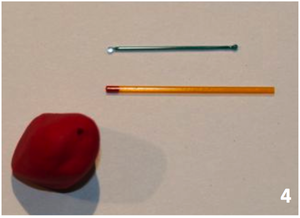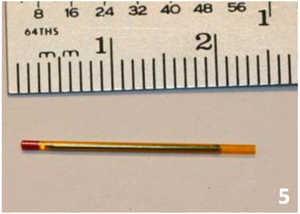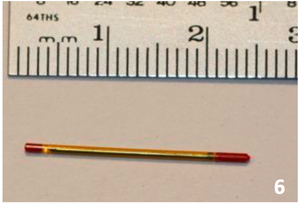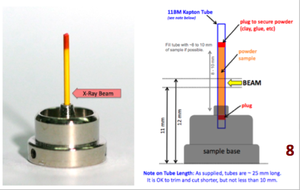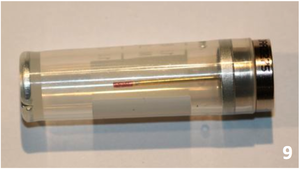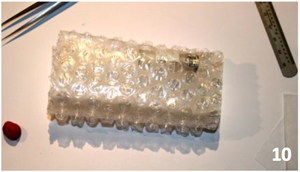Difference between revisions of "Nesting Capillaries in Kapton Tubes"
| Line 7: | Line 7: | ||
Note: 11-BM does not provide glass or quartz capillaries for mail-in experiments. Only Kapton tubes (with an inner diameter of 0.81 mm) are provided for the mail-in service. Please see the wiki page on [https://wiki-ext.aps.anl.gov/ug11bm/index.php/Capillary_Tubes Glass & Quartz Capillary Tubes] for more info. | Note: 11-BM does not provide glass or quartz capillaries for mail-in experiments. Only Kapton tubes (with an inner diameter of 0.81 mm) are provided for the mail-in service. Please see the wiki page on [https://wiki-ext.aps.anl.gov/ug11bm/index.php/Capillary_Tubes Glass & Quartz Capillary Tubes] for more info. | ||
==Instructions== | |||
[[image:NestCapInKaptonImage_1.png|300px|Image 1]] | [[image:NestCapInKaptonImage_1.png|300px|Image 1]] | ||
Revision as of 20:01, 26 January 2012
Background
Specific mail-in samples (for example air sensitive material) may require the use of additional glass or fused quartz capillary tubes. Any additional capillary must fit and be secured inside the supplied Kapton tube.
Sample preparation instructions for his are shown below, and can be downloaded as a [.pdf file].
Note: 11-BM does not provide glass or quartz capillaries for mail-in experiments. Only Kapton tubes (with an inner diameter of 0.81 mm) are provided for the mail-in service. Please see the wiki page on Glass & Quartz Capillary Tubes for more info.
Instructions
Load well ground powder inside glass or fused quartz capillary. Capillary with diameter of 0.5 mm will easily fit side supplied Kapton tube. (Capillary with diameter of 0.7 mm might fit if care is taken with sealing)
